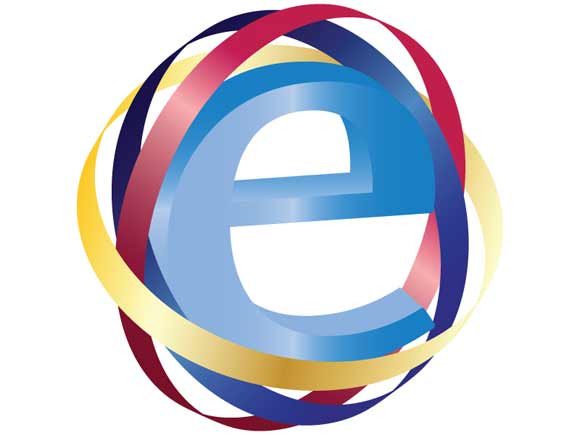Convince the Average User to Change to a Non-IE Browser
2Internet Explorer was launched by Microsoft in 1995. Ever since that time, the browser has been included in all Windows versions. There were also some later versions or packs which were available for download. Internet Explorer, often shortened as IE, was launched in 9 different versions over the past 16 years, and even if Internet Explorer 9 comes with tremendous good features and is definitely an improvement, web developers and designers might prefer Google Chrome, Mozilla Firefox or Opera.

Internet Explorer 10 has been announced to be in development, but we do not know anything else about the release date or its features, although pundits suggest there will be full support for HTML5 and CSS3. However, it is very difficult to convince users to change from Internet Explorer when they have used it for the last 15 years. The average user is not comfortable with another browser and might prefer to stick to Microsoft’s software, which also comes with the Windows line.
Internet Explorer 9 still misses several important features and, unfortunately, only developers and designers are fully aware of this. Trying to change people’s minds is not easy, but it is possible, according to my experience. Today we take a look at some tips to help you change people’s browsers and make them experience the other tools as well.
People who do not understand the fundamentals of web only want to access the big blue “e” icon and browse. It is simple. It is what they have been doing their whole lives. Why would they want to change something that is not broken? In their eyes Internet Explorer works well and, because there are no alternatives, they have to stick to it. But they need to become aware of the alternatives!
Developers have to explain them that they do not like Internet Explorer (unless they work for Microsoft), and that people using Internet Explorer might not get the best out of the internet. IE fans might come and tell me I am wrong, but after spending so much time on the internet in the last 10 years, and having most of the browsers on my computer, I think I know my deal around the web. Internet Explorer is not the thing anymore and people have to understand that there are better options out there.
The average web user needs to be explained that the usability of IE is not as good as that of Chrome, for example. Google’s browser is not only faster when accessing websites, but is also faster to use when you want to search for something on Google (or any other search engine for that matter). Now a box is good for everything – writing the web address and searching on Google; which means there is more space available. Do not forget about the tools and add-ons Google Chrome offers.

Image by shutterstock
And if we move to Mozilla, there are even more add-ons, although Mozilla is not the best browser for a not-so-new computer. Mozilla uses a lot of RAM, especially when more tabs are open, but it offers a better web experience than Internet Explorer does.
It is also possible all this is the fault of the educational system, because not making a difference between a search engine and a browser, as many people do nowadays, it is clearly not their own fault – but the fault of the one who educated them. The young generation needs to be educated and it is better to explain that it is for their own sake to use some other browser. It is OK that this happens with older generations, because changing their minds and preferences is difficult. However, the schools need to have new computers and offer the students a variety of browsers, not only IE. And why not have a debate about this topic during the IT class?
Many websites on the internet recommend browsers themselves, through the “Optimized for [insert browser name]” phrase, which might work too.

Image by shutterstock
There are many people who do not understand the basic functions of a browser or the important parts of the internet, so explaining them that the support for HTML5 and CSS3 is not fully working in Internet Explorer might not be very productive, but it is worth mentioning to the ones who have a bit more knowledge about what a designer does.
Installing other browsers on company computers might work too. Most of them working with the Windows company (if not all of them) offer Internet Explorer, sometimes not even upgraded to the latest version (see Windows XP users), and the employees are stuck with it. How would someone expect users to use other browsers if they are stuck with IE eight hours a day?
The truth is that convincing people to change from one browser to another is not an easy task and is not for old people, that’s for sure, but it is possible. With some effort from everybody users can start thinking for themselves and not use IE only because it is the default.

Image by shutterstock
But don’t get me wrong, only because I don’t like IE doesn’t mean nobody can use it, but I know many users would be happier with others browsers. There’s no shame in saying this, and no surprise, that Internet Explorer fell down in the ranks in the last couple of years, and Mozilla and Chrome lead the market now. If around 2/3 of the world’s population uses these two browsers, it means there is something special to them. From the 22% of the IE users in July 2011, I am sure more than 15% are average users who don’t know about other options. It’s time to let them know.
What do you think about the “browser war”? Do you know some other ways of convincing people to change the browser they are using? If you use Internet Explorer, why do you do so?





Agreed that using anything other than IE will yield a better web experience. And that’s where the agreement ends. What an insulting and immature article. Instead of actually educating, this post is full of blame toward ignorant, stubborn, old people. And, blaming the whole education system – really?
I’m in the business of teaching. I have yet to encounter a client who displayed any hesitation in switching from IE once they saw the benefits AND were given a few minutes of help becoming familiar with a new platform and moving all their bookmarks and such. And yes, that includes quite a few old people.
I’m curious what this post would look like if all the sentences with the word need, and all the paragraphs of blame were removed. It might actually leave only the educational parts.
@MaAnna: I have no idea where are you in the educational system, but I quite doubt you are as long as you do not know that in some countries IT teachers HAVE NO IDEA why Chrome or Mozilla are better than IE. Maybe you are one of the lucky ones and teach in a good school (that is if you teach, although I do not think you do – you wouldn’t have taken this as an insult if you would be a smart teacher, but as an advice), but remember not all the schools have teachers of high quality.
I am not only writing about the US, but about every other country in the world. I assume you are from the US and are ignorant and think that the whole world is as smart as you are – well my lady, let me tell you that is totally not true.
People in the second- or third-class countries have issues in their educational system. They do not get educated and I am talking from my own experience. I don’t know who you think you are and why do you suppose you are smarter than everybody else and know everything.
Next time you comment, please do it after thinking, not before.